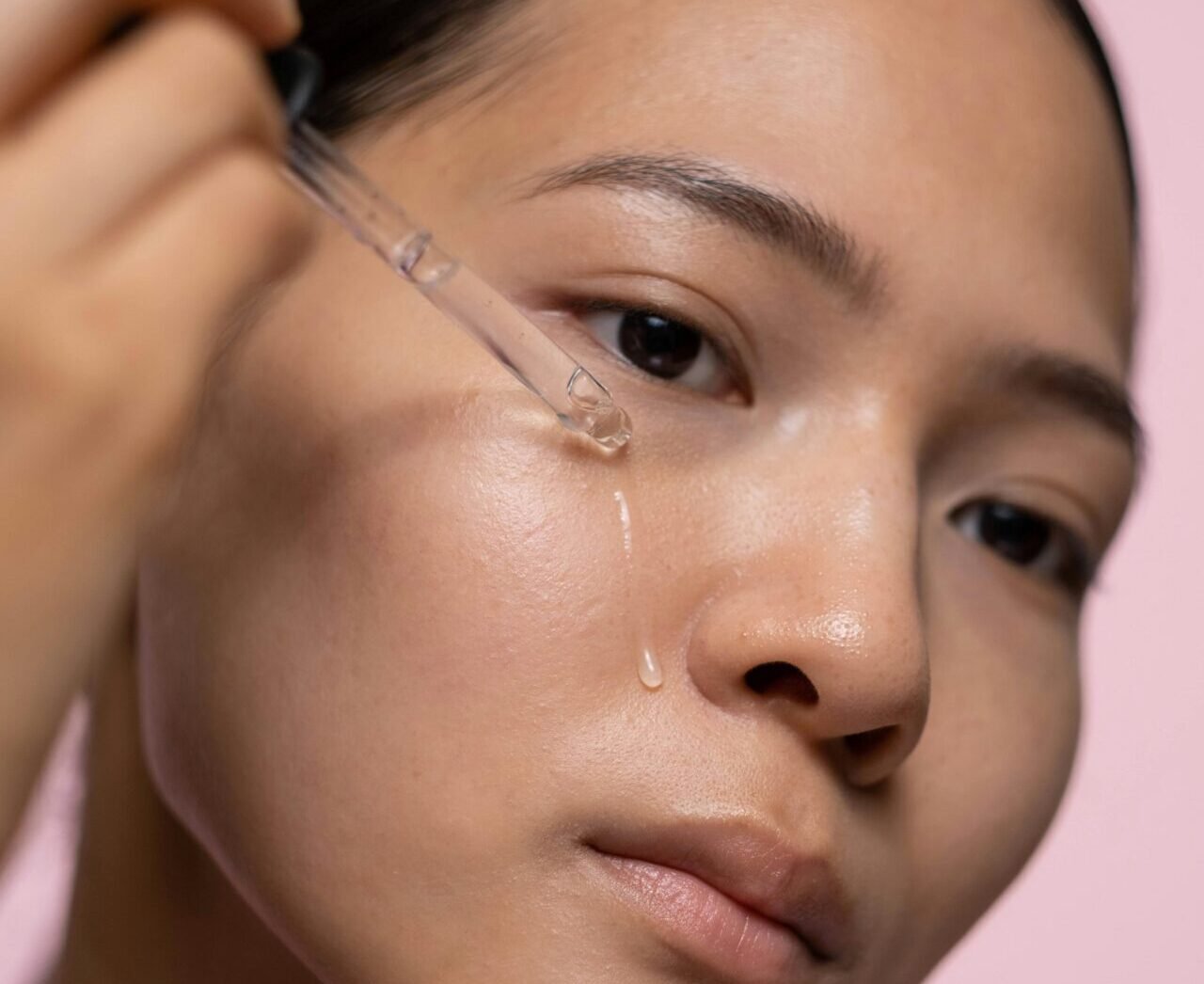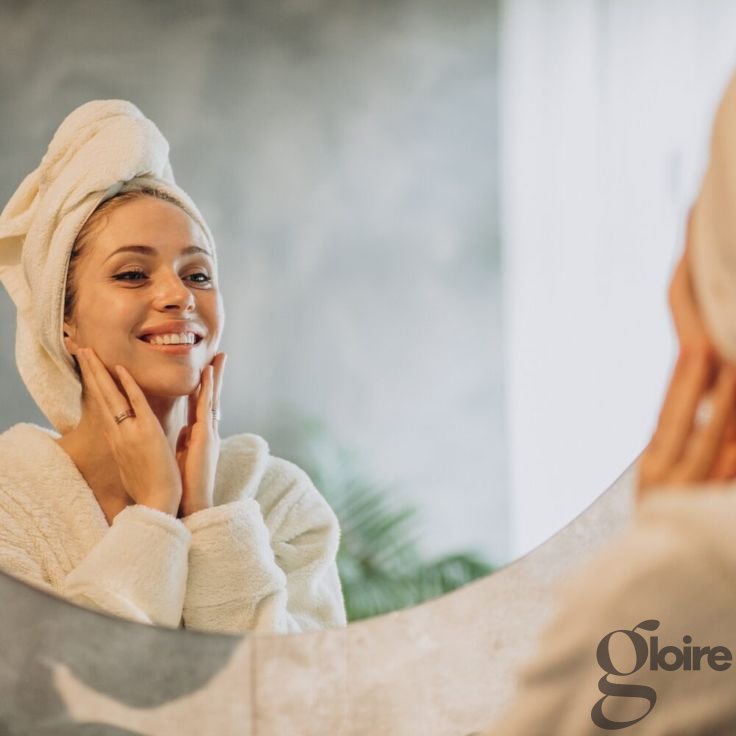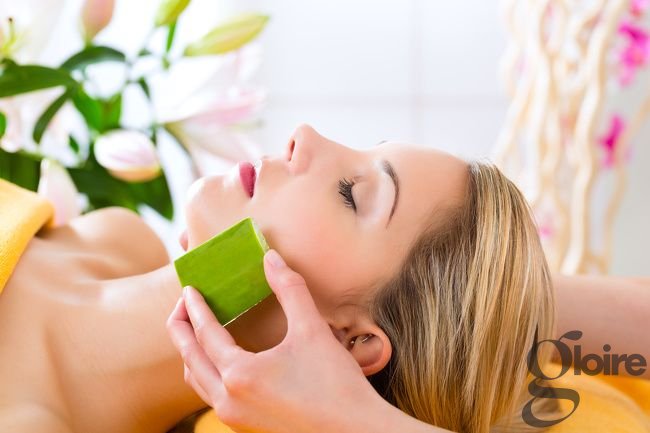1. Combatting Dry Skin
During menopause, the skin’s ability to retain moisture diminishes, leading to dryness. Here’s how to address it:
- Use a gentle cleanser: Swap traditional soaps for mild, non-drying cleansers to avoid stripping natural oils from your skin.
- Moisturize regularly: Apply a moisturizer enriched with hyaluronic acid or glycerin immediately after bathing and throughout the day as needed.
- Seek professional advice: If dryness persists, consult a dermatologist. Treatments like exfoliation or microdermabrasion may help but require expert guidance to prevent skin damage.
2. Managing Age Spots and Sun Damage
Years of sun exposure can cause age spots and other forms of discoloration, which may become more prominent during menopause.
- Apply sunscreen daily: Use a broad-spectrum sunscreen with SPF 30 or higher to protect against UV damage. Apply it to all exposed areas, including your face, neck, and hands.
- See a dermatologist: Schedule regular skin checks to identify and address skin cancer or pre-cancerous growths early. A dermatologist can also recommend treatments for age spots that are safe and effective.
- Start skin self-exams: Learn how to examine your skin regularly to detect any unusual changes.
3. Preventing Thin, Bruised Skin
As estrogen levels decline, skin loses thickness, making it more prone to bruising.
- Sun protection is key: Daily sunscreen application can prevent further thinning.
- Consider retinoid creams: These may help improve skin thickness and texture. Laser treatments are another option; consult your dermatologist for advice.
4. Dealing with Unwanted Facial Hair
Hormonal shifts can lead to excess facial hair, particularly on the chin and jawline.
- Consult a dermatologist: Options like prescription creams or laser hair removal can safely address unwanted hair.
- Avoid at-home treatments if your skin is thin: Waxing or other harsh methods may cause tearing or irritation.
5. Addressing Hair Loss
Hair thinning or loss often occurs during menopause due to hormonal changes.
- Act early: Seek a dermatologist’s advice at the first sign of hair loss. Early intervention with treatments like minoxidil or laser therapy can improve outcomes.
- Consider hair restoration: If significant hair loss has already occurred, a hair transplant might be an option.
6. Tackling Wrinkles and Sagging Skin
A rapid decline in collagen levels during menopause can lead to wrinkles, sagging skin, and enlarged pores.
- Sun protection helps: Shielding your skin from UV rays can reduce the appearance of wrinkles and prevent further damage.
- Try retinol or peptide products: These ingredients promote collagen production and improve skin firmness.
7. Managing Acne
Hormonal fluctuations during menopause can trigger acne, which requires a gentler approach than teenage acne.
- Use salicylic acid cleansers: These help unclog pores without over-drying the skin.
- Avoid harsh acne treatments: Over-drying products can worsen skin issues. Consult a dermatologist for hormonal treatments if necessary.
8. Sensitive Skin and Rashes
Menopause can make skin more sensitive, leading to rashes or worsening existing conditions like eczema or rosacea.
- Use fragrance-free products: Fragrance-free moisturizers can help minimize irritation.
- Consult a dermatologist: If rashes persist or worsen, professional care may be needed to manage sensitivity effectively.
9. Slower Wound Healing
Lower hormone levels can delay the skin’s healing process, increasing the risk of infections.
- Be patient: Understand that wounds may take longer to heal.
- Seek medical attention if needed: A dermatologist can address infections or complications that arise during healing.
Taking Action: Your Skin Care Plan
Menopause-related skin changes may seem daunting, but they are manageable with the right care. Prioritize daily sun protection, maintain a consistent skincare routine, and consult a dermatologist for personalized advice. Early intervention and proactive measures can make a significant difference in preserving your skin’s health and appearance.








